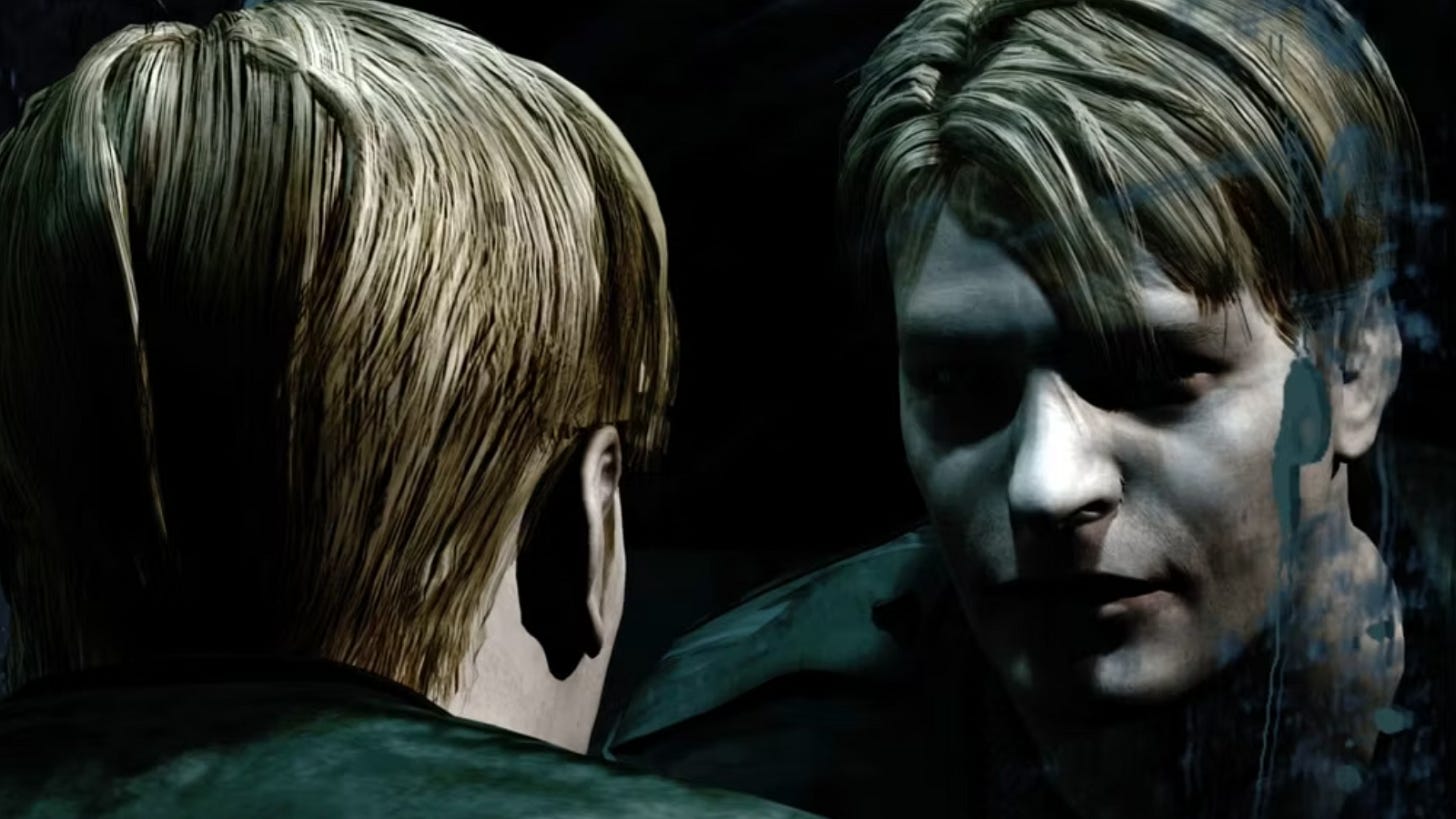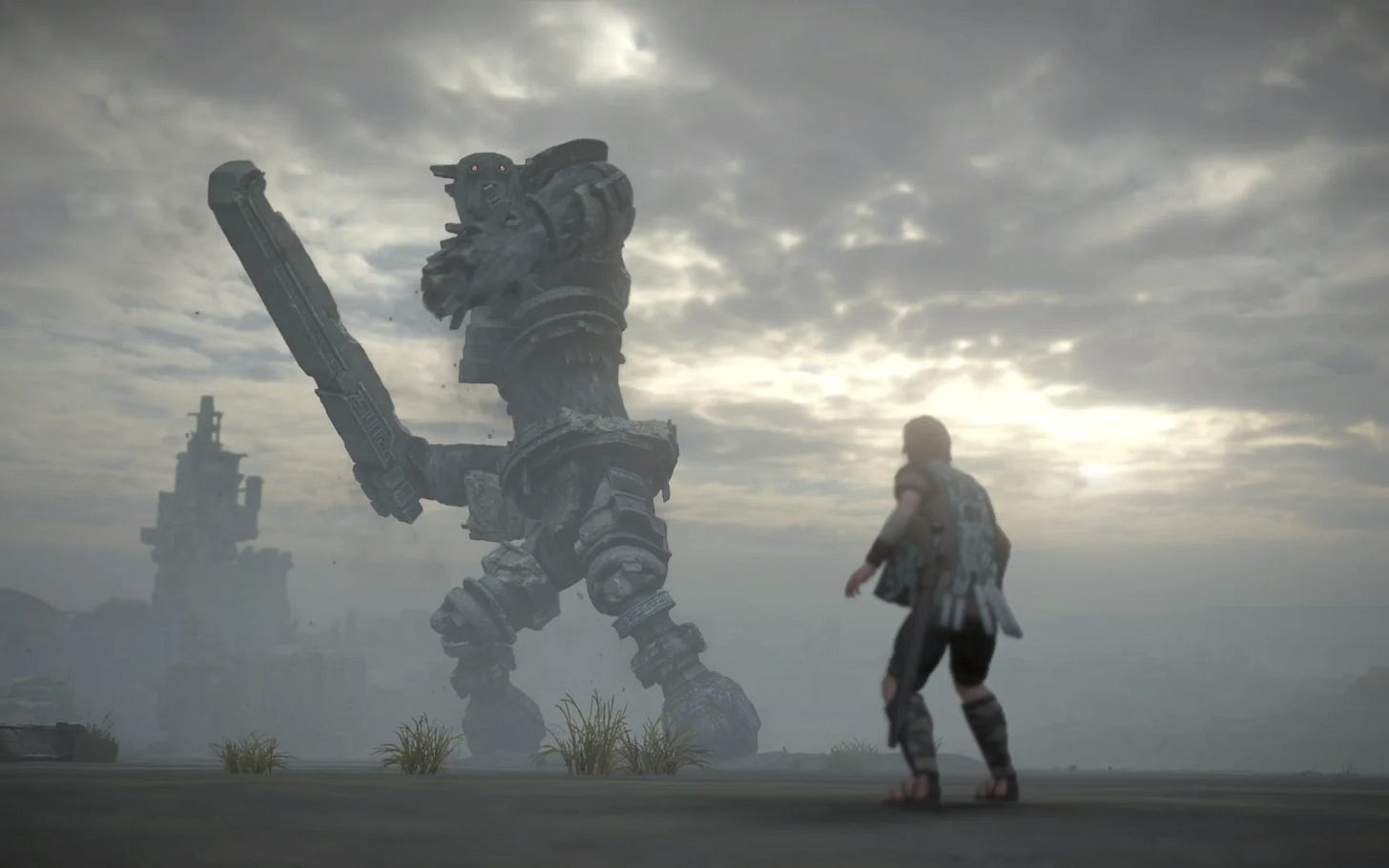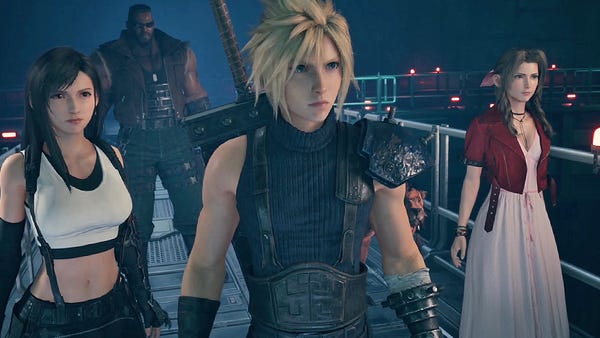What is the purpose of a remake?
Honoring the legacy of classics, or burying them in a shallow grave?
Authors Note: I realized far too late that I already wrote about this subject last year when Resident Evil 4 Remake came out. However, as a man completely unafraid of sunk cost I’m going to publish this anyway, as a sort of update on my feelings about the subject matter. Also time is a flat circle in the games industry, which is kind of depressing to think about. You can find the previous post here.
John Carpenter's 1982 film The Thing is one of the all time greats of science fiction horror. A grotesque, tense, atmospheric and deeply creepy tale of trust, misdirection and body parts doing things they really shouldn't be doing. It's one of those films that, should you have the stomach for it, is essential viewing.
Something that you might not know is that The Thing is the third adaptation of the 1938 novella Who Goes There? by John W Campbell Jr, preceded by 1952’s The Thing From Another World and 1972’s Horror Express. I mention this droll factoid not to diminish the accolades of Carpenter's vision, but rather to highlight that there is value in revisiting previously ventured journeys.
Carpenter’s film made such a cultural impact on the landscape of cinema that it has, to many, become the definitive telling of that story, and one of the most iconic shape shifting body horror fables of all time. Valuable by its own merits, and yet it simply would not exist without that which came before.
In spite of being seen now as the definitive experience of that particular story, it's clear even from a glance that The Thing is a wholly different beast to its predecessors. So much so that it feels brand new, stamped eternally with its creators’ signature style, and ultimately telling a very different tale in the process.

I was thinking about The Thing a lot as I watched the latest trailer for Bloober Team’s Silent Hill 2 Remake. A project that, for all its bells and whistles, to me feels entirely disingenuous. A remake of something that in its original presentation still manages to capture the awe of new players and, more importantly, still looks great to this day.
I don't want to cast judgement on a game I have yet to play, even though, based on their previous handling of sensitive subject matter, I have qualms about the studio making it. However, based on what I've seen, and, more critically, how difficult it is to play the original game on modern hardware, it really does seem like Konami are intent on having this game replace the original wholesale.
Designed to become not only the definitive experience of that story, but the only one. A consumption of identity, the placement of something that really does look like this beloved aspect of gaming history, until it opens its mouth.
Do you see why I started with an anecdote about The Thing?

What is the purpose of a remake?
It's clear today (as it was when I wrote about this last year also) that the videogame remake is still a hot ticket item for many publishers. The sales figures don't lie, folk like these projects. They see them as valuable, and to a certain degree I get it. That thing you liked when you were younger, now in a snazzier form, new bells and whistles and sometimes even a reflection on the legacy of the classic that brought it into existence.
I have a lot of time for Bluepoint’s Shadow of the Colossus remake, an updated version of the same experience that to me captures the spirit and feel of that original game wonderfully, even down to the peculiarities of its control scheme.
It is not the same game, however, and I've seen many valid criticisms over the years regarding how subtle changes in the visual direction and the addition of new textures and animations destroys some fundamental features of that original game's identity.
Doubly so for Bluepoint's Demons Souls remake, which I have yet to play but even I can attest from footage alone feels like a wholly different beast to that original, paradigm shifting title.
Like Bluepoint's offerings, there is a place in all this for Silent Hill 2’s remake, but the binding thread between all three games is clear as day: you cannot easily play the originals on modern hardware.

This is not an issue of rights holding, as far as I’m aware in all three cases the original IPs are owned by the publishers of the remakes. So this really does seem like an intentional obfuscation of the past. In denying players the opportunity to experience those original works on the same platforms, the message is ringing out loud and clear: This is the only thing you should be paying attention to.
These are the games.
There is an understandable danger that arises from this kind of practice. A work of art is not something so easily replicated. As mentioned previously there are subtleties to the execution of these projects that are built around the limitations of hardware, the resolution of monitors, the audio output of both. These things can come to define what makes a work so great, the signature style of a studio in a very specific space and time of their lives. A thing to be cherished, but often is seen by certain corners of the community as flaws to be fixed.
By removing the context of these limitations and an understanding of the value of what they bring to a piece of art, a remake in isolation becomes a sort of pathological man-made Mandela effect that changes the very nature of the thing that it is suppose to revere.
Why, as it is being reported, is the Silent Hill 2 remake twice as long as the original? How are we going to end up talking about the things that Bloober Team have added, and the tone shifting qualities of these creative liberties, when the rosetta stone we would need to use has been stolen away by entropic market forces?
This isn't the be all and end all of video game remakes and this isn't a moral crusade against the idea of reimagining or updating a classic for the palates of modern audiences. As I said, I like the Shadow of the Colossus remake, I thought the recent Switch version of Live a Live was excellent. Hell, even the Toys for Bob Spyro trilogy has a lot going for it, even if a 37 year old man isn't strictly the target audience.
These games still remain bound by the same problems highlighted above, but sometimes a project like this can show reverence and respect to its forebears while also decidedly trying something new.

Final Fantasy VII, one of the all time greats of gaming, also has a lavish pair of remakes that…well, don't always nail the landing when it comes to interpretation of iconic events and characters, but still remain a bright and thoughtful love letter to something that remains alive to this day.
Final Fantasy VII Remake, and Final Fantasy VII Rebirth, are games that fundamentally could not exist without the context of the original game. Not just in the same sense that I could not exist without the romantic entanglement of my parents, but on a deeper level these games require a symbiotic relationship with that which came before. Their meta narrative plays on player expectations, their identity is intertwined with not only Final Fantasy VII the game, but also everything that emerged around the property over the nearly thirty years since it's original release.
And here's the crucial point, reiterated once more: you can still play Final Fantasy VII, easily. And it's not a diminished experience when placed side by side with this polished, flashy new version, but rather an essential text in understanding what works and what does not. These titles are not, as their names suggest, a simple pair of remakes but rather a Rebuild of Evangelion style attempt to reconcile the original game’s long standing legacy and the pressure of expectation that comes from the idea of a remake itself.
In any interpretation of the purpose of a remake, it should really be up to the audience to decide which edition of a particular work of art becomes the ‘definitive’ one. In my mind this method of interpretation rather than replacement feels a lot more honest and a lot less like the ‘fixing’ of artistic intent.
The problem with remakes, therefore, is a problem of preservation. Of the medium’s unique problems in retaining access to older games as hardware gets updated, source code gets lost and compatibility forever remains a bone of contention throughout. The question of what is the purpose of a remake doesn't even really need to be answered, it's different for different folks.
I know many will be chomping at the bit to get their hands on the Silent Hill 2 remake, and who knows maybe it will be really good. A noble execution that faithfully captures not only the atmosphere but the uncanny dread of that original game. But in doing so, ask yourself this:
Are we really honoring the legacy of great works by replacing them? Revising history by giving the world something that looks like this friend we've known all these years until the heat is turned up, it opens it's mouth and all that emerges is the unearthly screech of everything it has consumed in its wake.
God, I really need to watch The Thing again.





